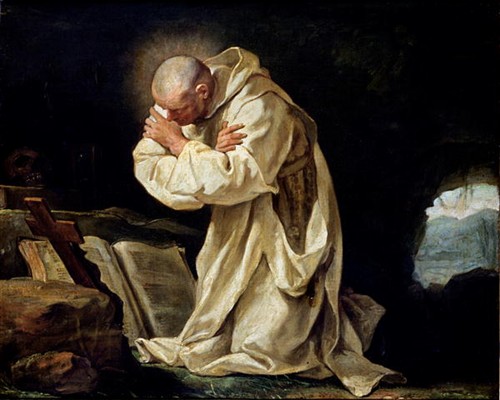|
The Charterhouse, the name given to a Carthusian monastery, has always been known as a "desert." This
term is meant to indicate in the first place the physical solitude of the monastery, far removed from contact with the exterior
world. However, the term "desert" is fraught with biblical overtones, and it is these which give the monastery's outer solitude
all of its meaning. For the desert is traditionally the place where God draws his people "to speak to their hearts" (Hosea
2:16).

It was to the wilderness of the Sinai peninsula that God drew the people of Israel
when, under the guidance of Moses, he wished to speak with them, teach them, purify them of their sins and imperfections,
test their hearts, form them into children of God, and enter into intimate converse with them, into a convenant relationship
of love and fidelity. This tells the meaning of the Charterhouse "desert."
Stripped of the comforts and consolations found in the "city," the Carthusian
finds himself in an austere place of silence and solitude. "This is holy ground," we read in the Carthusian Statutes, "a place
where, as a man to a friend, the Lord and his servant often speak together; there is the faithful soul frequently united with
the Word of God; there is the bride made one with her Spouse; there is earth joined to heaven, the divine to the human." And
in harmony with the biblical account of the desert experience, the Statutes add: "The journey is long, and the way dry and
barren, that must be traveled to attain the fount of water, the land of promise."
Charterhouse of the Transfiguration
Vocational Booklet - 1987
The Desert
Carthusian Life
Life in Cell
Top of Page
|
